Covid 19: Tiptree jam maker's 'sticky year'
- Published
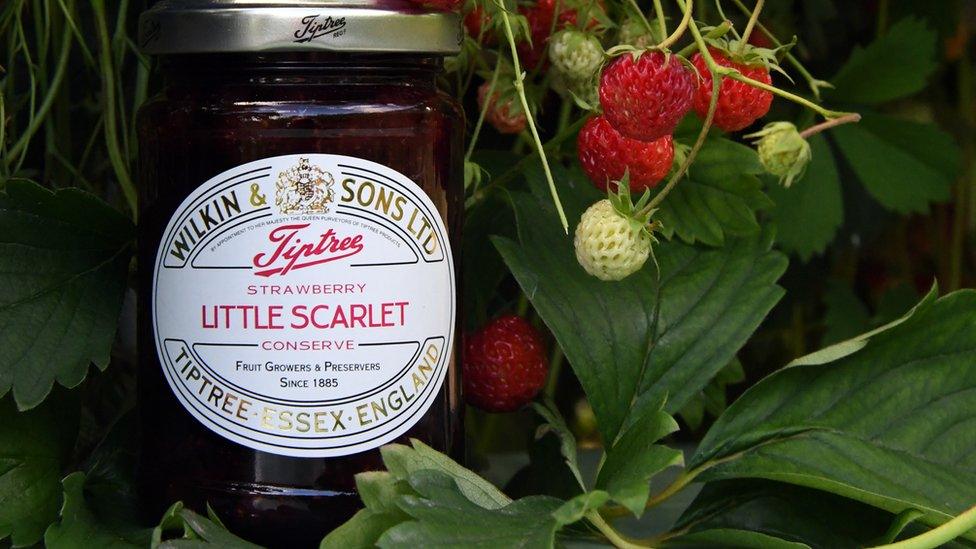
Tiptree's Wilkin and Sons employs between 400 and 500 people
Its jams are a staple of hotel breakfasts across the globe, but the makers of Tiptree's most famous produce have had a sticky past year.
People might be forgiven for overlooking the pandemic's impact on the jam business.
But the preserves from Tiptree are sold in two main forms; the larger jars found in the home and the little jars served up at hotel breakfast tables the world over.
With the coronavirus pandemic wreaking havoc across the hospitality industry globally, the demand for those little jars has nose dived.
Wilkin and Sons, external, based in Tiptree near Colchester in Essex, saw 2020 end with its district moving up from tier two - high alert to tier four, only to be followed by the national lockdown announced on 4 January.
The business itself is multifaceted and surprisingly small.
Its international sales team consists of just two people. The entire workforce, including the factory, fruit pickers, tea rooms and office personnel fluctuates between 400 and 500 people.
The company, founded in 1888, picks the fruit, makes its various products and then sells it, whether through its own tea rooms, online, to supermarkets or to the hospitality sector.
In 2019, it had a £50m turnover,
The firm's curious year began weeks before the spread of the coronavirus.
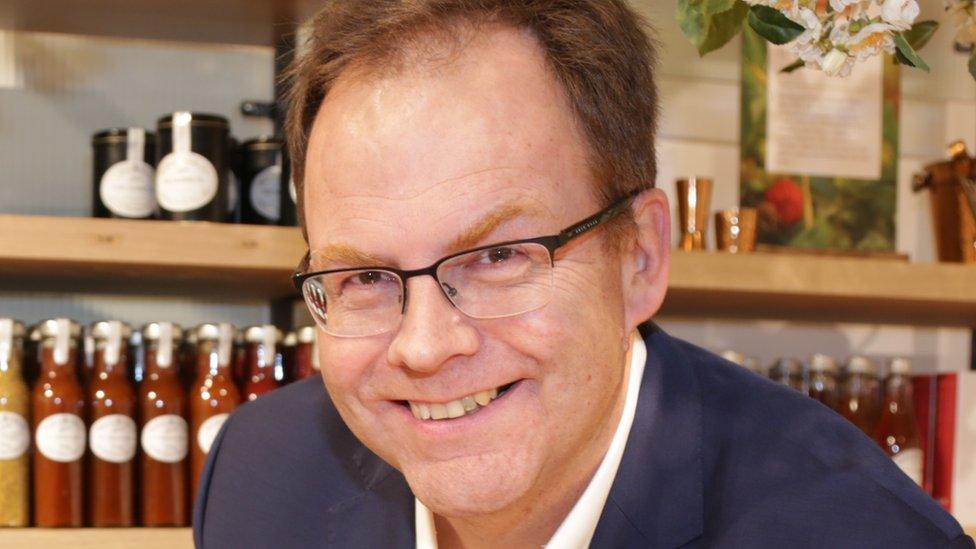
Scott Goodfellow said "no-shows" from seasonal fruit pickers increased five-fold in 2020
"The difficult thing at the start of 2020 was to do with our pickers," said Scott Goodfellow, joint managing director.
"Many come from Romania and Bulgaria and we've been having annual pickers for about 50 years. At the start of 2020 [because of Brexit] it was not clear as to what was going to happen.
"We had a 20% no-show from the pickers we were expecting. Normally the figure is about 4%."
Then came the coronavirus pandemic and the first lockdown, which meant the firm had to close its tea rooms.
But the waiting and catering staff were reassigned and found themselves - along with Mr Goodfellow and others from the main office - out in the fields helping pick the fruit.
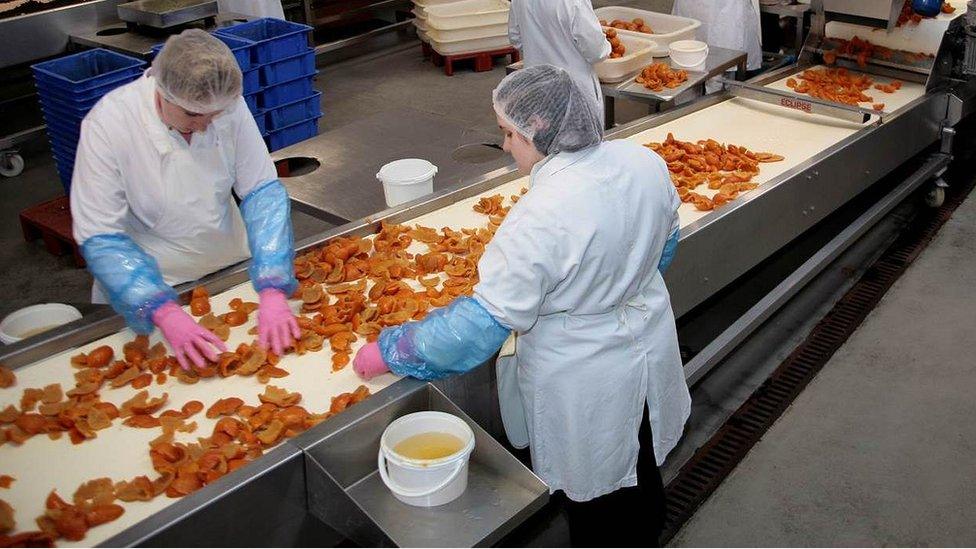
Before the pandemic Wilkin and Sons employed about 120 people in its factory
"Something happens and you've just got to react to it," he said. "We've had to be nimble. For the first two weeks we had to get up to speed with the picking, but it was really nice being outdoors.
"Thankfully our strawberries are not at ground level, but at shoulder height, which made it a little easier on the back."
The coronavirus hit the firm's hospitality buyers first.
"Our business selling the little jars really took a tumble. We've had poor sales there," said Mr Goodfellow.
"We export all around the world so anything that affects our customers globally is always going to effect us too."
However Wilkin and Sons' retail sales - the large jars people have on their shelves - have remained solid, he said.
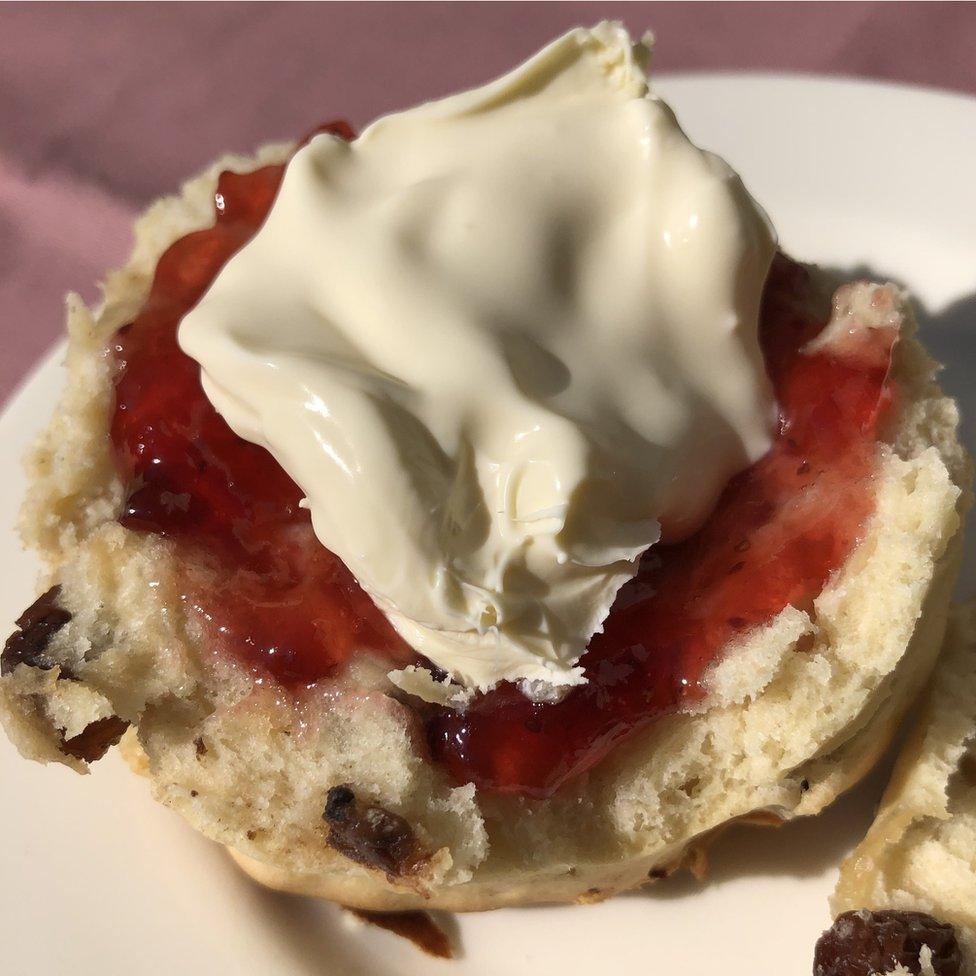
The pandemic has helped create a new avenue for the business - delivering fully prepared afternoon teas to people's homes
Before the lockdown, online sales were a tiny part of the business. But the pandemic has helped create a new avenue - delivering fully-prepared afternoon teas to people's doors.
The boxes contain scones, preserves, clotted cream, carrot and lemon drizzle cakes, brownies and flapjacks.
"We've sold about 10,000 afternoon teas," said Mr Goodfellow.
"The customers ordering the delivered teas are mainly people who have found themselves unable to get out to the shops or the tearooms and so have been buying them directly from us."
The second, less-restrictive, lockdown in November once again forced the firm to close its tea rooms. But while the first lockdown saw tea room and office staff decamping to the picking fields, that one saw them joining the firm's 120 jam factory workers.
The past year has left Mr Goodfellow philosophical about what future twists and turns the pandemic might bring.
"This has been a challenging year," he said. "We will continue to do the right thing and whatever the rules require to keep people safe."

Find BBC News: East of England on Facebook, external, Instagram, external and Twitter, external. If you have a story suggestion email eastofenglandnews@bbc.co.uk
Related topics
- Published17 July 2019
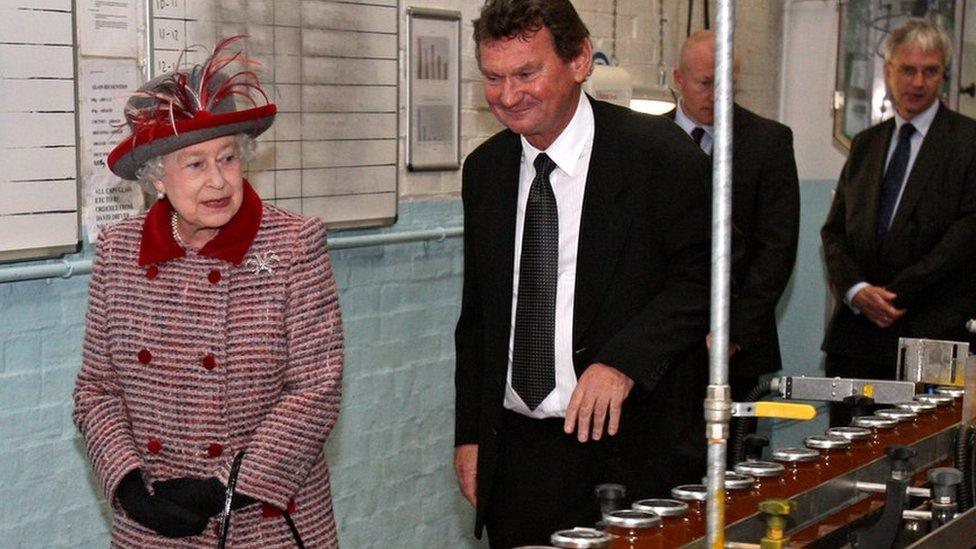
- Published17 August 2018
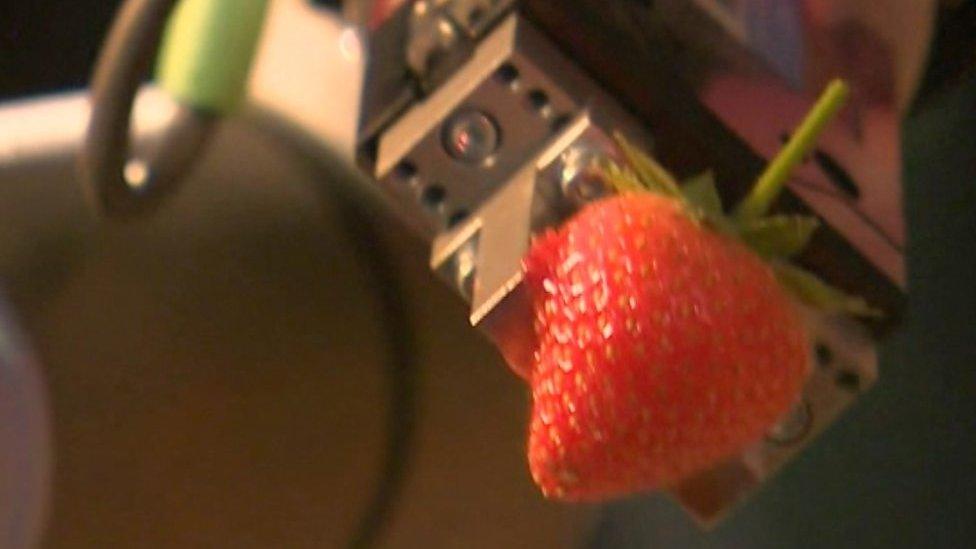
- Published24 January 2018
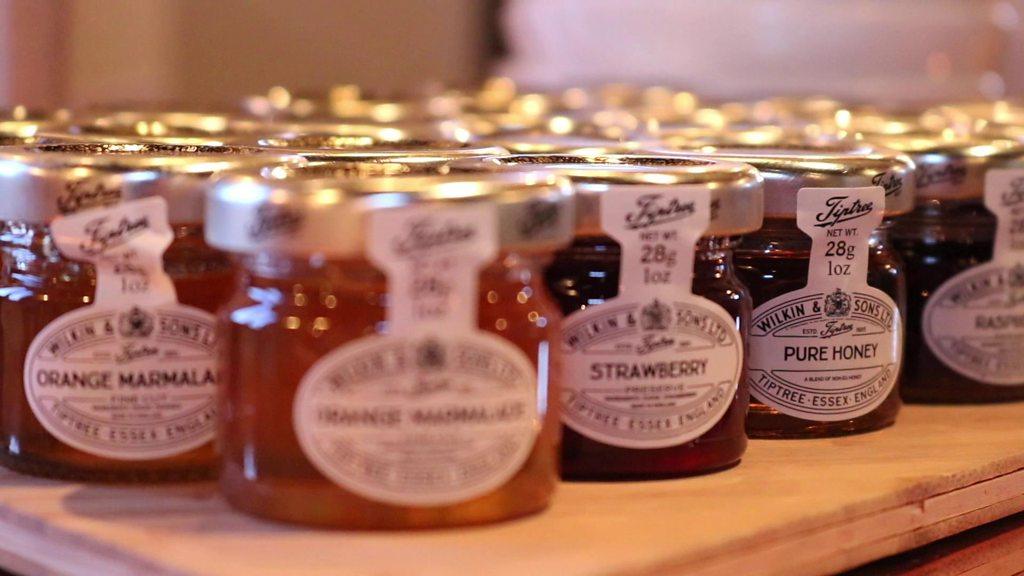
- Published26 March 2018

- Published19 June 2014
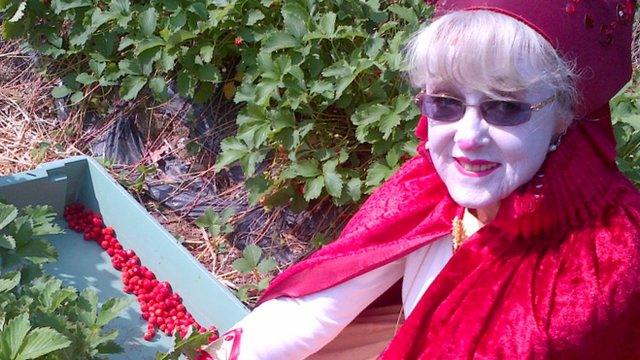
- Published25 February 2013
